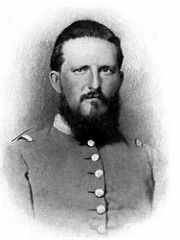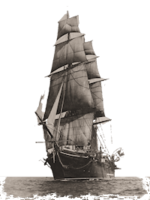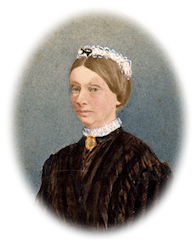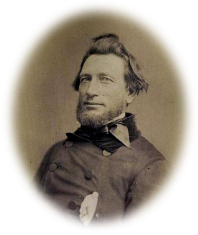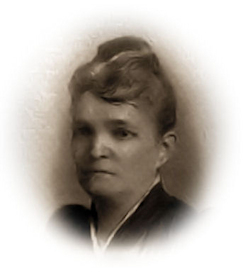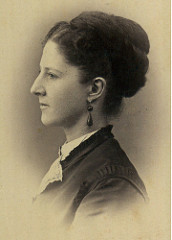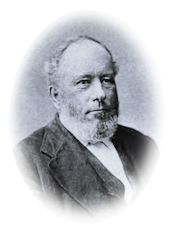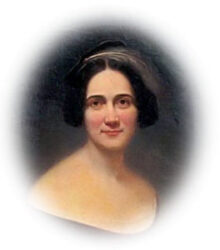Benton County, Arkansas
Camp Hallek (sic)
17th Regiment of Missouri Volunteers,
Company C
25 February, 1862
Your letter of November was sent on to me by my wife.1 I am of course happy to know that everything goes well with my brothers and sisters back in Germany. Is Brother William a pastor or a professor? Since I am almost out of touch with my closest friends in this country, I can get no news from any of you over there if I do not hear directly from you. Just think, if you will, that I sit here in my tent, only thirty-six miles away from Hermannsburg, not more than a day’s ride, and yet I can not give you one bit of news about any of our folks. An army that is three times as large as ours stands between me and home. In December I had word that the two Hermann families were all right….
On July 11, 1861, I went into the service of the United States Reserves as a captain. The period of that enlistment was three months. At the expiration of that enlistment period (although I had done nothing but guard bridges and railroad tracks) I reenlisted with my original rank; this time for a period of three years. I am now in the “Western Turner Rifle Regiment of the 17th Missouri Regiment.”
For six days we pursued the enemy forces as they retreated from Missouri into Arkansas, here and there killing some of them, taking others prisoners. Almost daily our advance guard fired upon the rear guard of the enemy, but we could never engage them in regular battle for they continued to retreat toward the organized Arkansas army of Confederates. Now we are idle in this camp awaiting reinforcements as well as our baggage trains, which could not keep up with us. For a fortnight the men of my Company have not had tents. In fact, they have had no cover at all. It is doubtful that one can say we are provided with sufficient necessities. We sleep on the ground with the sky as our cover; in the evenings we lie around camp fires and roast our beefsteaks on forked sticks. In daytime we have marched chilled to the bone, often over frozen ground, for twenty-five or thirty miles a day, all the time prepared for and even expecting a fight. Although we officers have perquisites not generally enjoyed by the men—comfortable tents, horses, flunkeys, etc.—I take the hardships along with my men to set an example. I have at times ordered some of the men to walk or ride behind me.
Right now we have provisions and it is not necessary to forage on the country as we have done at earlier times. Most of the horses ridden by infantry and cavalry officers were captured, not stolen.
We have sought to avoid the horrors of this fratricidal war, but there are things that we have been unable to escape. In Bentonville, a thriving little town located about three miles from where I write, a soldier who belonged to one of our patrols was fired upon from a house. A second member of a patrol was stoned to death. Our soldiers, angered by those events, set fire to the town and about twenty houses were burned to the ground. Poisoning has played a part as well; day before yesterday one of our cavalry officers died from the effect of poison. I certainly do not accuse our regularly organized enemies of perpetrating such deeds. It is the fanatical, malicious marauders who are guilty. General Price and his raiders, gangs against which we are ashamed to be forced to fight, have been driven out of Missouri. Now I hope we will have an opportunity to engage a regular Confederate army in battle. Right at this time a Confederate army is bivouacked in the neighborhood of Hermannsburg; or more accurately, about seven miles this side of the settlement. If I could get over there, I would find some way to protect my family. I have already spoken to General Sigel about that possibility. Of course I hope the enemy will be driven back to Fort Smith. I doubt that they will be willing to engage us in battle once our reinforcements have arrived.
You may know that in other states our armies have been victorious. I hope the Southern forces will soon surrender. I want to return to civil life, but only with honor. The motive of patriotism, together with disgust because of the indifference and indecisiveness of our government caused me to leave civil life and enlist in this time of emergency.
If men like Fremont and Sigel had been put into places of important field commands, patriotism would not have degenerated into rheumatism, and the war would have ended before this. To quit now would place one under suspicion. I have decided to fight to the end, doing all I can in good conscience (taking into consideration my family). If I should be killed while in the service, my wife would receive a pension of thirty dollars a month the rest of her life. With respect to finances Uncle Sam is quite generous. Even for my present enforced idleness he pays me $131 1/3 a month.
- This selection is taken from a letter written by Franz Wilheltni and sent to his sister in Germany.
“Memoirs, Letters, and Diary Entries of German Settlers in Northwest Arkansas, 1853-1863”. Selected and Translated By Clarence Evans, Tahlequah, Oklahoma. The Arkansas Historical Quarterly Vol. VI Fall, 1947 No. 3
